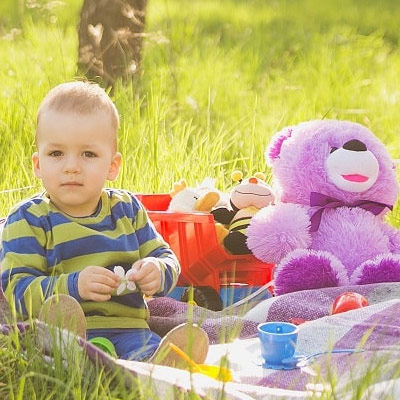 For some children even small amounts of dust mites, pet dander, pollen, mold, and even chalk dust can be detrimental to their health if they suffer from allergies. Things that seem harmless to some kids can cause sneezing, congestion, watery eyes and even asthma in some preschoolers. This is why you should talk to administrators to see if their preschool has an allergy plan.
For some children even small amounts of dust mites, pet dander, pollen, mold, and even chalk dust can be detrimental to their health if they suffer from allergies. Things that seem harmless to some kids can cause sneezing, congestion, watery eyes and even asthma in some preschoolers. This is why you should talk to administrators to see if their preschool has an allergy plan.
Mold has been a major concern in schools and inspections are usually mandated. It is a potent trigger of allergies and asthma for children, as well as adults. Mold can be hidden behind wallpaper, under rugs, and most commonly near water sources. Signs of water damage on the walls or ceiling tiles are a general indicator that mold exists.
Here are some additional items to investigate at your preschool. Parents need to address concerns if they see anything suspicious that may be harming their child’s health.
Pets can cause havoc in the classroom. If your preschool wants to house a pet gerbil, bird, or other creature make sure families are notified of such animals to see if the children are allergic. Some school districts prohibit fur-bearing animals and in these cases maybe fish would be a better option.
Beware of poisonous plants. Green plants bring nature and oxygen to the classroom, but some are poisonous if touched or ingested. Look for safe plants or consider artificial flowers or other decorations where schools can “green†the classroom.
Napping materials. If your child stays in the daycare most of the day, an afternoon nap is usually scheduled. Make sure the preschool provides allergen-proof pillows and washable mats. Most preschools will ask the parents to bring in their own sheets and blankets.
Preschool rooms should be kept free of strong scents, such as perfume air fresheners, heavily scented cleaners and disinfectants. Some children have triggered reactions to scents. Even teachers should refrain from wearing perfume to the classroom when teaching young children.
Air conditioning and heating systems should be checked and cleaned often. Changing air filters is a must for keeping the room allergy free. Another added help is to run a HEPA air purification unit in the classroom.
Cleanliness is a number one priority. Food should not be kept in the classroom long term and any spills during snack time or lunch must be cleaned up immediately. If spills occur on carpeting, this dampness may harbor mold. Crumbs can lure insects, which also cause allergies. Classrooms should be dusted and vacuumed regularly and all trash removed daily. The ideal time to clean is when students are away.
Food allergies are of utmost importance. Check with the parents on what a child may or may not consume. Many preschool have parents sent in their child’s snacks and lunches to avoid food allergy situations.










